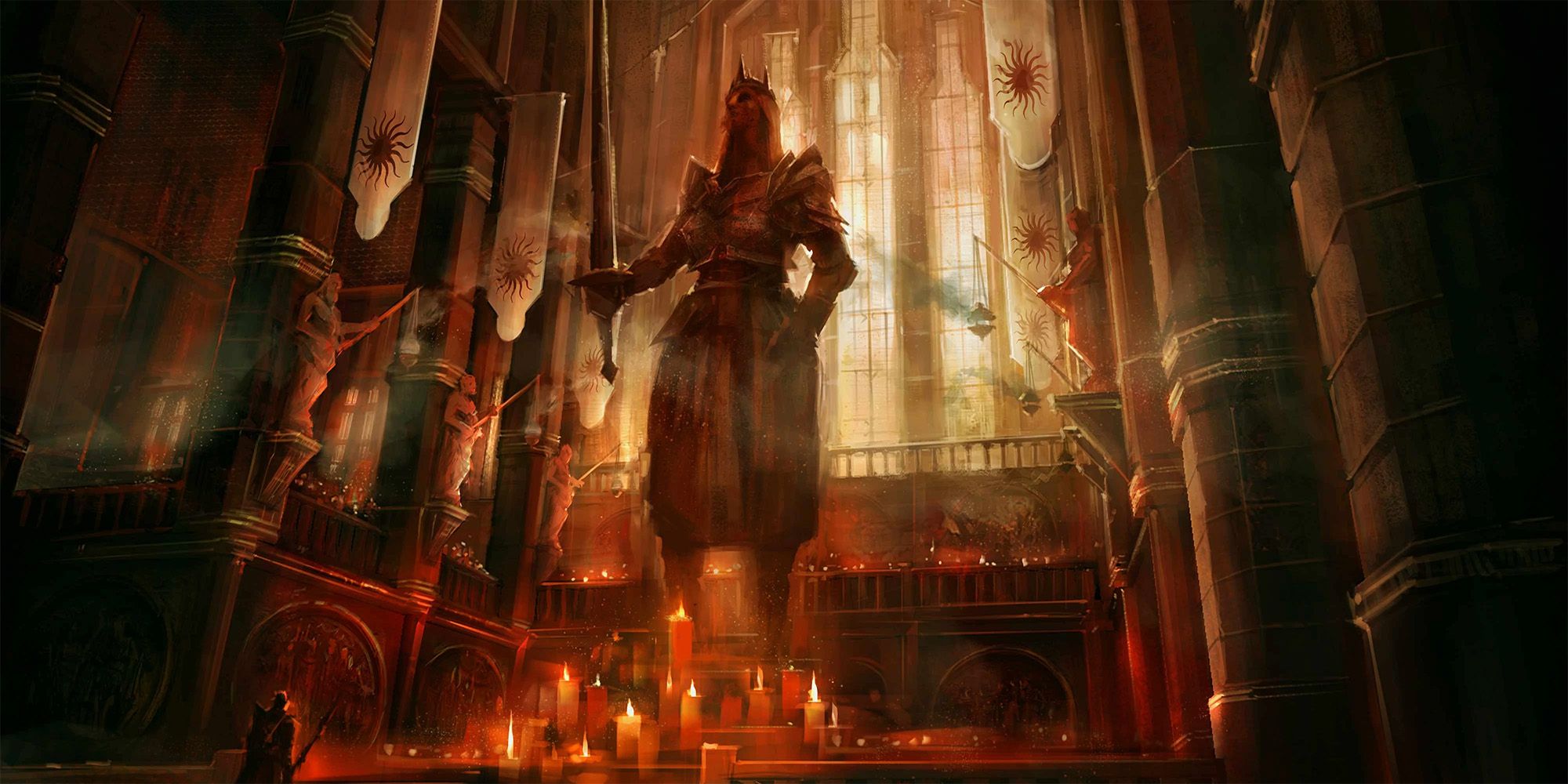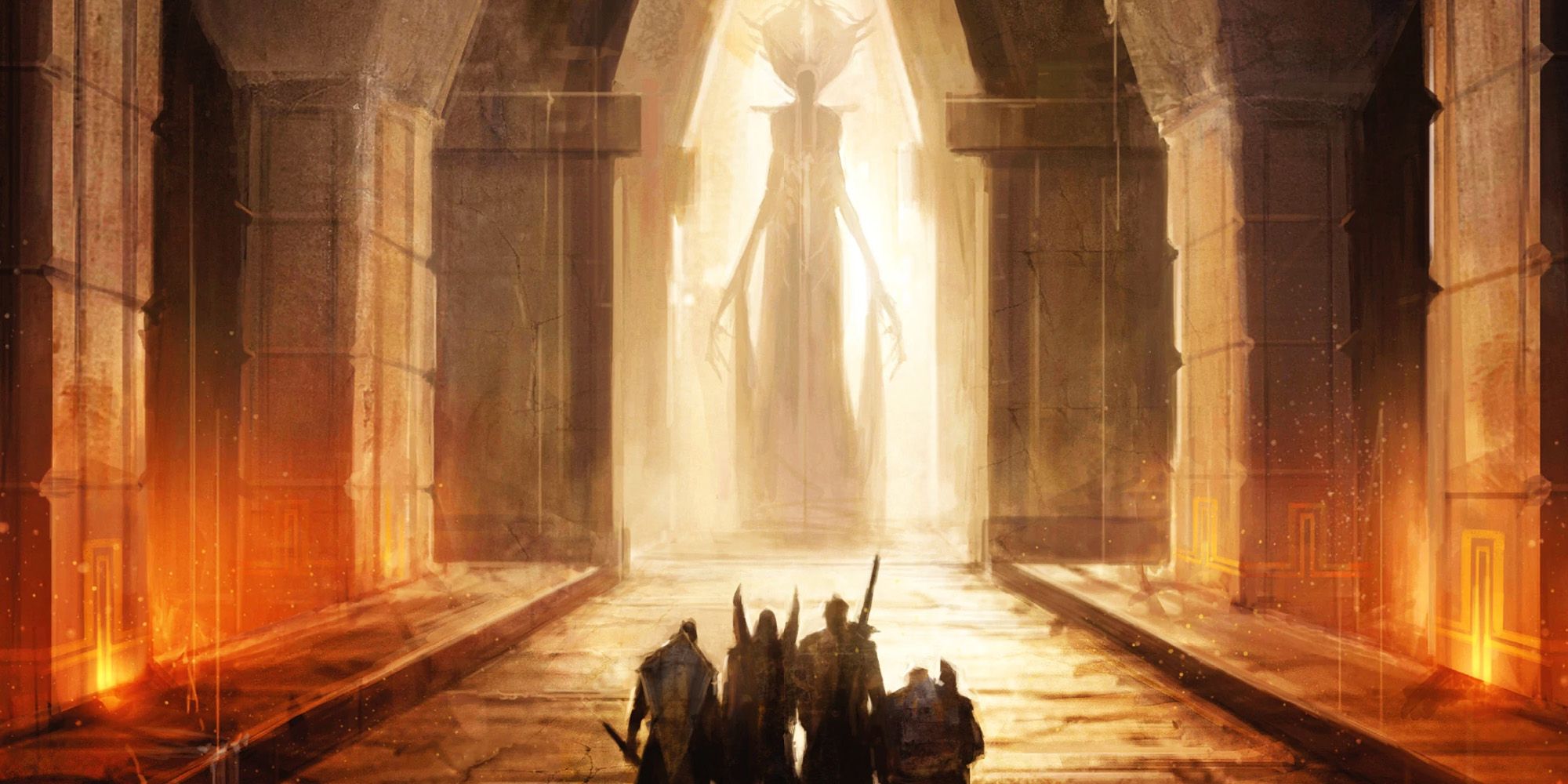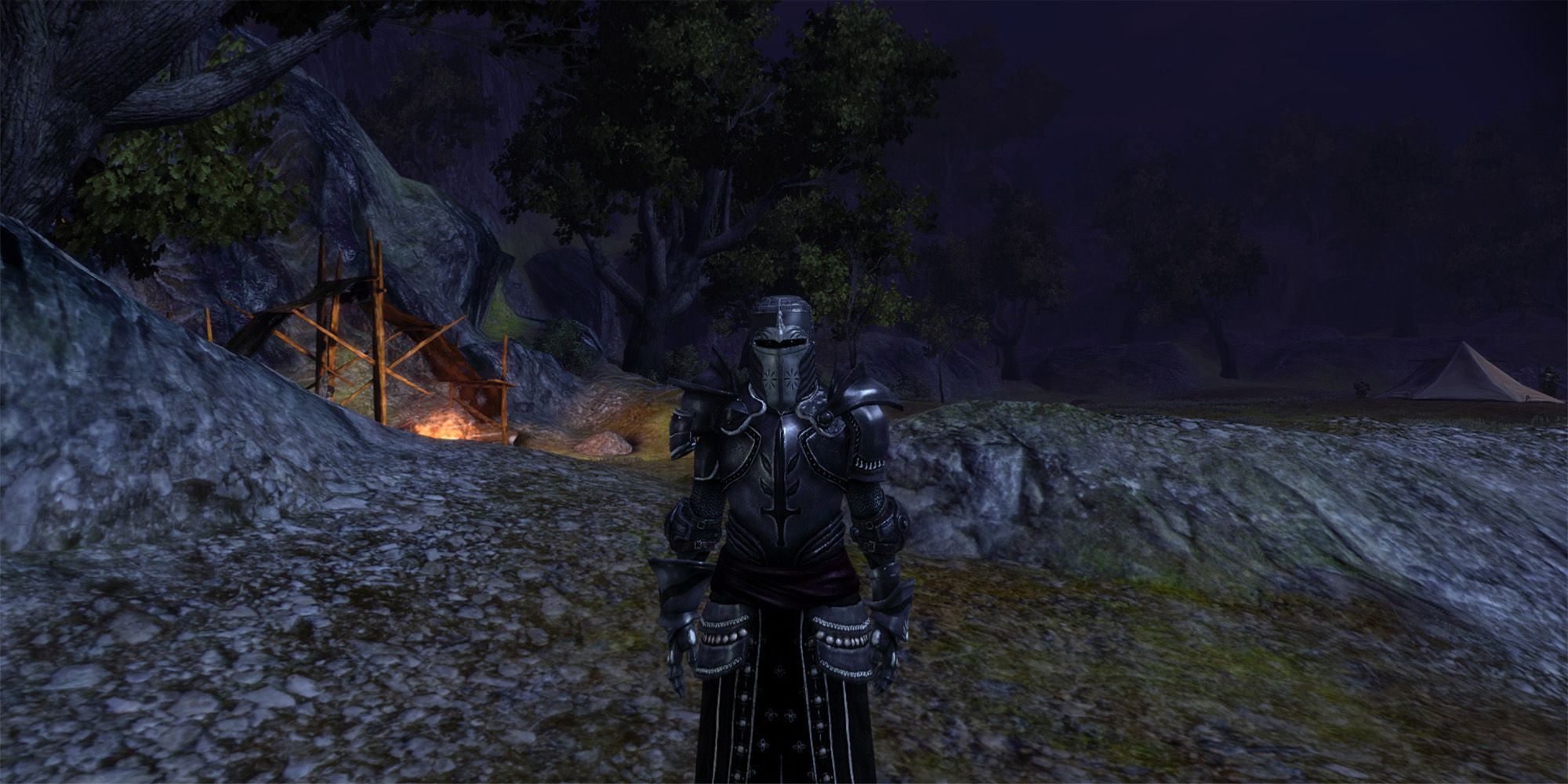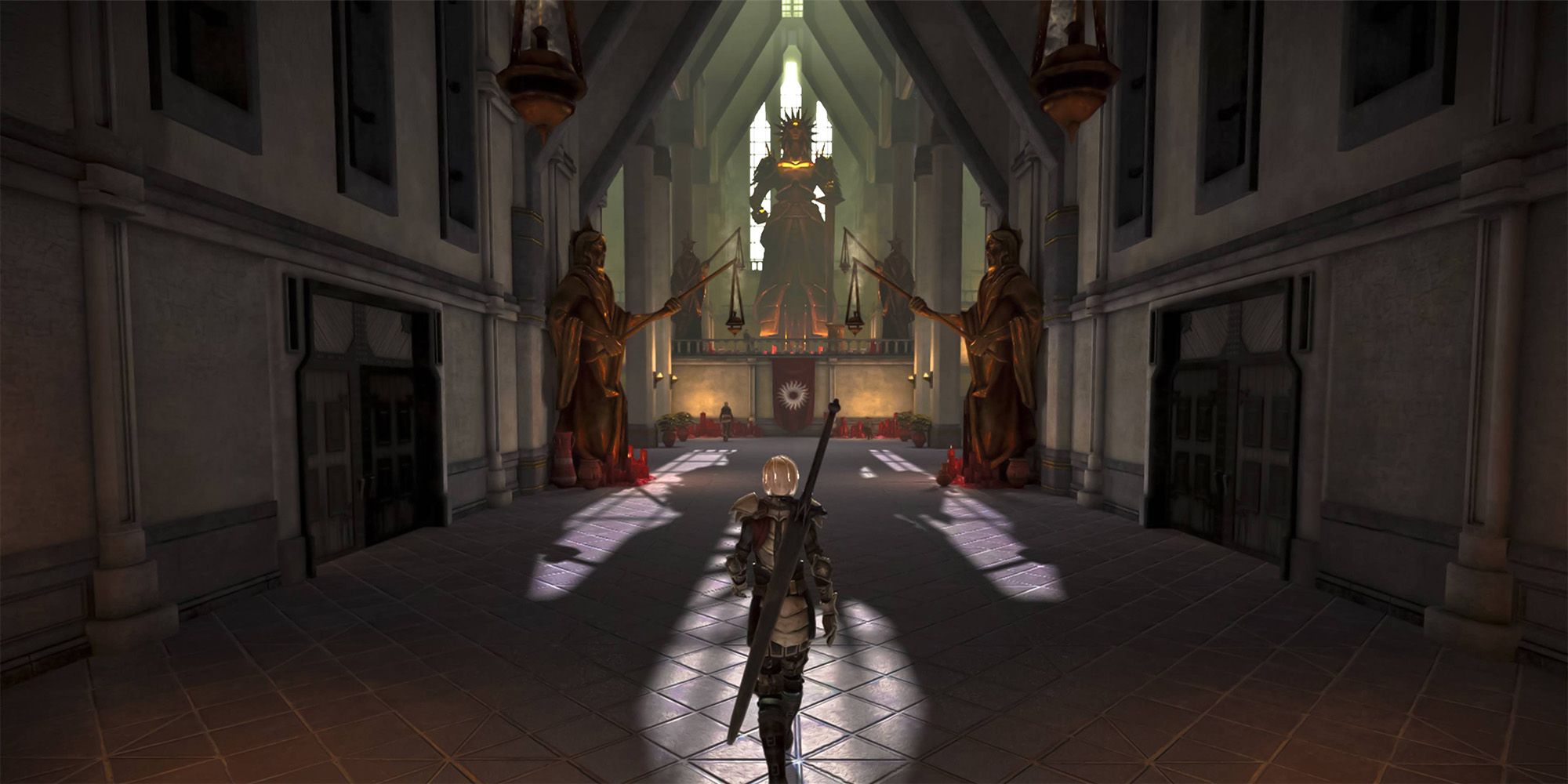Cults are a given in just about every world, and the Dragon Age universe known as Thedas has plenty of them. The Cult of Andraste, the Cult of the Sky and various dragon cults speckled throughout the land are only a few to have risen within the world. One particularly powerful cult, The Chantry, resonated with the people after the martyrdom of the Maker's alleged bride and prophet, Andraste.
The Chantry was based around Andraste's teachings and contained four Canticles that became known within the church as "The Chant of Light". The broad subject matter included within the Chant covered everything from the origins of the world to the trials and tribulations of Andraste and eventually detailed the formulation of the Chantry itself.
Formed around four basic principles, Andrastians and the Chantry believe first and foremost that the sins and pride of humankind destroyed The Golden City, where the Maker Himself once dwelled and the Darkspawn were born. Secondly, they touted that Andraste was a holy prophet and the bride of the Maker, and her sacrifice must be celebrated. Next, it is only through penance and unification of all peoples in Thedas that the Maker's love and attention could be restored. Finally, they expressed an incredibly dark view on magic and the mages who wield it: Magic is a corrupting influence, and it must be closely and carefully monitored and controlled.
Though their beliefs were originally fragmented, the creation of the hymns within "The Chant of Light" won over the original cult, and as renown spread the cult of Andraste became the Chantry with the naming of the first Divine, Justinia I. The Divine, who is always a woman outside the Tevinter Imperium, is tasked with overseeing the Chantry and all its affiliated organizations. With Justinia I in the seat of power, the Chantry only continued to grow, and eventually, they gained control over the Circles of Magi to ensure mages were properly taught and their practices highly regulated.
As philosophies continued to evolve, a great divide separated the Imperial Chantry from the rest of the world, and though debates have circulated for centuries over the true reason for this separation, the Imperium did not believe Andraste to be divine. There were also rumors that those in the Imperium, a nation run almost entirely by Magisters, had very little interest in the magical restrictions the Chantry wished to impose upon the mages--including the denial of the use of blood magic. The Imperial Chantry became its own entity, reshaping the practices and teachings to their standards and placing a male in the seat of power: The Black Divine.
Two factions were born within the Chantry after the acquisition of the mages: the Templars and the Seekers of Truth. Templars were given the task of watching over the Circles of Magi and hunting down apostates and blood mages, while the Seekers of Truth kept a close eye on the actions of the Templars. Such power grew well beyond the confines of its original intent, and in time those within and beyond the Circle of Magi began to resent the power the Templars and the Chantry held over them.
As the Chantry continued to gain power in Thedas, the establishment found itself in the position to influence the politics of nations. While standing back to survey the land and its devotion to the Maker, the Divine found it within her power to declare "Exalted Marches" on anyone deemed heretical to their cause and purpose. Though the first Exalted March took place long before the formation of the Chantry, when Andraste and her army marched against the Tevinter Imperium, the Chantry followed the prophet's example on numerous occasions throughout the ages. They marched first against the elves of the Dales, who allied with Andraste in her crusade against Tevinter, further sullying the already tense relations between elves and humans.
Each successive game in Bioware's Dragon Age franchise has prominently featured the Chantry. In Dragon Age: Origins, the player character sets out on a quest for Andraste's sacred ashes amid the chaos of the Fifth Blight in order to cure a dying Arl. The player'ss decisions upon finding the urn shape the future of the Chantry within the game.
In Dragon Age II, the entire city of Kirkwall is held prisoner by an overbearing Chantry under Templar Knight Commander Meredith, who is bent on keeping rebellious mages firmly in line. The tensions and paranoia wrought by Kirkwall's Chantry eventually led to an intense uprising and all-out war between mages and Templars. The war resulted in the death of Divine Justinia V at the Temple of Sacred ashes, where she'd gathered the people to broker peace. Justinia V's death, coupled with a massive tear in the veil and the rise of Darkspawn Magister Corypheus, inspired the launch of a second Inquisition in the third game: Dragon Age: Inquisition.
While there is far more going on in Thedas than the Chantry's actions, one would be remiss to discount the fact that at the core of every major event, the Chantry's involvement and influence runs deeper than it might seem from the outside. With power enough to guide monarchs and nations, and influence over both the washed and unwashed masses, the Chantry might very well be Divine Rule over all of Thedas. That may seem good for the religious establishment and its followers, but it isn't always what is best for the people forced to fall in line with Chantry agenda.
With events in Dragon Age: Inquisition cultivating significant changes within the Chantry, many of them guided by player choices, it is impossible to imagine what the core religious foundation of Thedas will become in Dragon Age 4, but rest assured, the Chantry will play a part in events.




